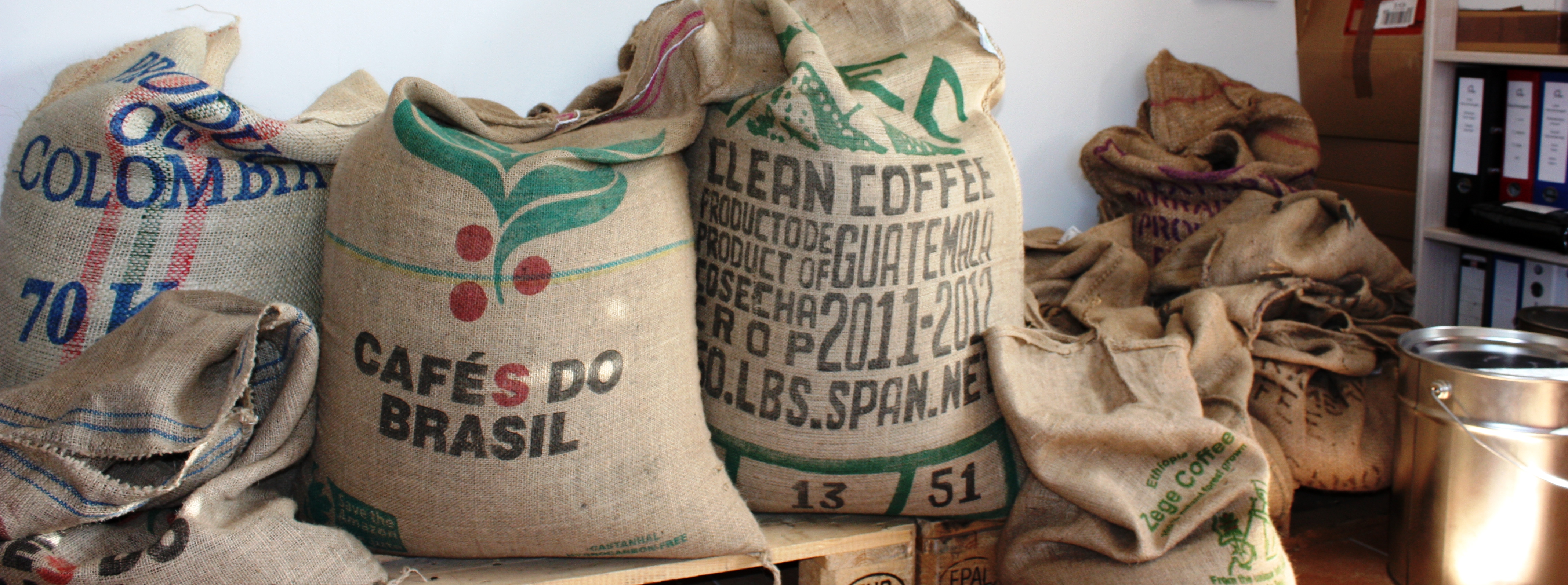With Full-Bodies Flavor and Light Notes of Cherry and Chocolate

What does this description remind you of? Why coffee, of course.
The number of coffee machines at SMA is hardly countable. The great thing is that we can use them all, free of charge. For those of us who can’t live without our daily dose, here is a special tip.
A nondescript single-family home situated just north, on the B7. A small sign with the opening hours and another one saying the doors are open. The sweet smell of roasted coffee embraces each visitor, which alone, is enough to make it worth the drive out there.
In one of the basement rooms, you’ll find everything needed for roasting coffee. Linen sacks filled with raw coffee beans of every kind, cans filled with the beans which were roasted the day before, coffee grinders and equipment for roasting.
Specialty Coffee
Not even the raw beans are from mass production, but are traded on the world market as specialty coffees and can only be obtained in small quantities. Following each harvest, the year’s allotment is purchased and stored in Hamburg. From there, it is shipped in small quantities on to Ringau.
The standard inventory includes 10 types of roasted coffee and 3 types of espresso. For the choosiest of connoisseurs, any bean can be roasted, from Jamaican Blue Mountain to Kopi Luwak.
To expand their assortment, the “boss in the basement” often experiments with new types of raw coffee beans.By visiting regularly, you quickly get to know exactly the sort of bean and roast you like best.
By the way, the title of this article describes an Ethiopian Zege Forest coffee – a strong, yet balanced coffee with full- bodied flavor and light notes of cherry and chocolate.
The Secret
For each type of raw coffee bean and for each harvest, the roasting temperature and length is first tried out and perfected using just a few beans before large quantities are roasted. It is fascinating to learn that with some coffees, getting certain notes to come out during roasting can come down to just a matter of seconds.
The average roasting process lasts between 12 and 20 minutes. After about 12 minutes, the seam in the middle of the bean breaks. After that, the beans are rapidly cooled in a sieve in order to preserve their aroma. Espresso beans are roasted longer. After about 18 minutes, the cell walls also begin to rupture, releasing even more aroma.
More conservative roasting methods require more time and give the coffee a more refined taste.
You should give yourself plenty of time when visiting this coffee house. Try out all the different roasts and along the way, you’ll get a lot of information and insights into the world of coffee. For example, it’s a good idea to look at the content description on the side of store-bought filter coffee. Maltodextrin is often an additive in such coffees, for example, which (among other things) reduces the amount of tax required for import. Although, corn starch in my morning coffee is something I could live without, though.
Buy Directly
Datterode is located directly on the B7, in the direction of Eisenach if you are coming from Kassel. An insider’s tip for those who enjoy coffee drinks of any kind. You can also order from their online shop, although visiting the store in person is much more fun. This gives you a chance to try out different sorts of coffee and get further tips. Not just bean freshness and the roasting process affect taste, but also the grind and brewing process.
In Eschwege, the Edeka Zeuch store recently added its own coffee and espresso line from the Landau coffee house’s assortment.
Online Ordering
For those of you who have already found your bean of choice, or who wish to forgo the sensual experience of visiting the shop in person, you can also order from their online shop below.




Feel free to contribute!